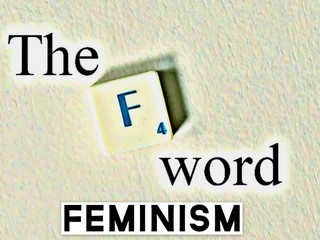
In 2016 there is a new F word causing controversy in schools. Students are allowed to say it, yet not many of them know exactly what it means. In some ways, this is more harmful than the original F curse word whose place it has taken.
A student at a nearby all-boys school wrote a response to a BuzzFeed entitled, “36 Questions Women Have for Men.” Some of those questions included, “Why do you hate rom-coms? to “Why is your first instinct to doubt women who have been sexually violated or raped?” He addressed each of these questions, quite poorly, mainly because he conflated questions from women with feminism.
Feminism is the fight for social, political, and economic equality of the sexes. To me, this definition should also intersect with racism, homophobia, and transphobia. Intersectional Feminism is vital for the progression of today’s society.
As an attendee of an all girls’ private school, feminism is a part of the culture of the school and the incorporation of feminism into the curriculum has made me an open and inclusive thinker. Because of this, I believe feminism should be an integral part of all school’s curriculum, similar to the study of the Declaration of Independence and Earth’s biodiversity.
Children who are exposed to feminism at an early age, will hopefully grow up to be open and inclusive thinkers. For example, people who grow up with this type of education will not practice micro aggressions towards all women. Micro aggression would be things like calling a woman who is your boss the other B word, labeling all Black women as “Angry Black Women” and questioning the “true” gender of a transgender woman.
Intersectional feminism will also challenge children to think deeper about the stereotypes they see in the media and in their own lives. It will show young women they have a voice in a typically patriarchal society and that they have the power to decide what they do with their own bodies.
It will also teach Black women that they are more than an “Angry Black Woman”, but also that their anger is valid. Intersectional feminism will also teach young men the benefits of gender equality, coupled with teaching Black men and others that Black men are more than their hoodies and slang terms. Intersectional feminism will ensure Transgender women are treated as women and therefore will receive all of the rights they are promised as an American.
But who should teach feminism to the budding minds of the future? And at what age should they be taught? Departments of Education may wince at the thought of hiring more teachers or paying for seminars and training for teachers in this time of shrinking educational budgets, but these steps need to be taken to safeguard the future of all types of women. All teachers should teach intersectional feminism as a part of the curriculum, which would establish a safe space for students to be properly educated and have difficult conversations.
When I was 10 I do not think I would have fully understood Feminism in its entirety, yet I do believe Feminism should be included in small ways. Teachers asking simple questions during class discussions about micro aggressions towards all types of women in literature or history will begin to open up student’s minds to equality.
Kaila Mundell-Hill is an intern in the Baltimore office of the AFRO American. She is a senior at St. Paul’s School for Girls in Baltimore.


